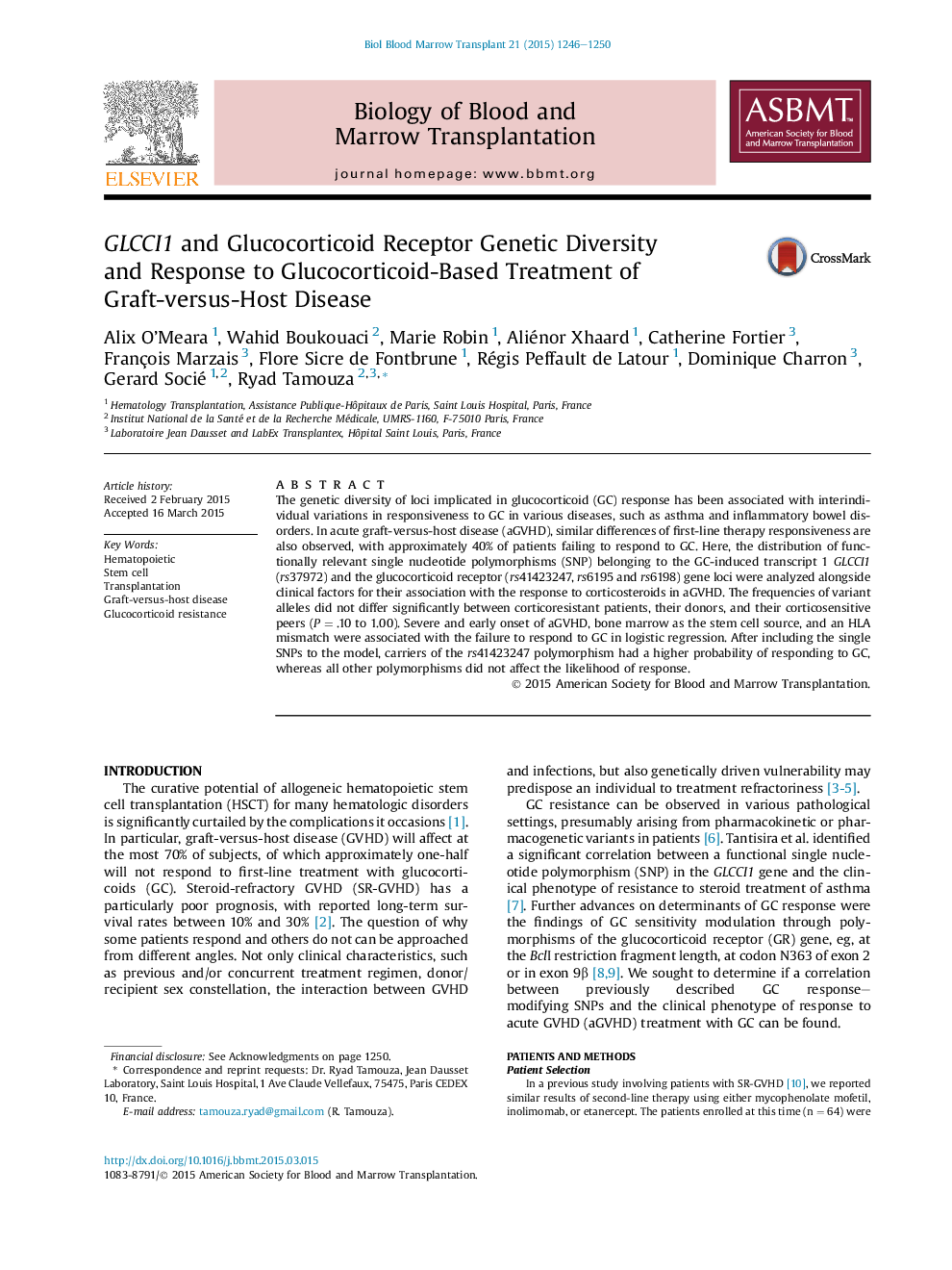| Article ID | Journal | Published Year | Pages | File Type |
|---|---|---|---|---|
| 2102249 | Biology of Blood and Marrow Transplantation | 2015 | 5 Pages |
•The impact of clinical factors and single nucleotide polymorphisms of GLCCI1 and glucocorticoid receptor loci were evaluated in the context of glucocorticoid response in acute graft-versus-host disease.•New insights into clinical factors and glucocorticoid response–modulating variants determining first-line treatment response of acute graft-versus-host disease.
The genetic diversity of loci implicated in glucocorticoid (GC) response has been associated with interindividual variations in responsiveness to GC in various diseases, such as asthma and inflammatory bowel disorders. In acute graft-versus-host disease (aGVHD), similar differences of first-line therapy responsiveness are also observed, with approximately 40% of patients failing to respond to GC. Here, the distribution of functionally relevant single nucleotide polymorphisms (SNP) belonging to the GC-induced transcript 1 GLCCI1 (rs37972) and the glucocorticoid receptor (rs41423247, rs6195 and rs6198) gene loci were analyzed alongside clinical factors for their association with the response to corticosteroids in aGVHD. The frequencies of variant alleles did not differ significantly between corticoresistant patients, their donors, and their corticosensitive peers (P = .10 to 1.00). Severe and early onset of aGVHD, bone marrow as the stem cell source, and an HLA mismatch were associated with the failure to respond to GC in logistic regression. After including the single SNPs to the model, carriers of the rs41423247 polymorphism had a higher probability of responding to GC, whereas all other polymorphisms did not affect the likelihood of response.
